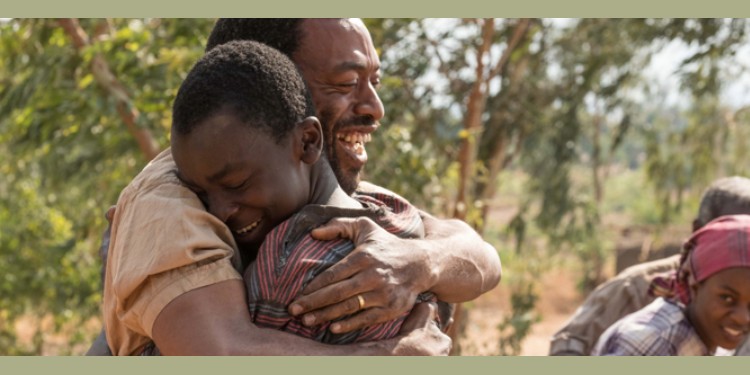The boy who harnessed the wind is a movie adaptation produced and directed by Chiwetel Ejiofor based on the true life story of William Kwakamba. The movie depicts how a young man’s thirst for solutions saves his family and community from the cold hands of hunger at a most unlikely time.
The Performer: William Kwakamba
Maxwell Simba plays the role of William Kwakamba, a young and inquisitive child whose major moments revolved around: working alongside his father on the farmlands, attending school lessons and reading at the library, hanging out with his friend, Gilbert at house parties and the junkyard and experimenting with ideas with his dog, Kamba. William was fascinated with electronics. From fixing a neighbour’s radio to reviving a music player at a house party. A typical African and amusing scene shows a neighbour hassling William for not having repaired his radio. He had turned to William’s mother before leaving, saying: “he is forcing me to come back from work and talk to my wife and children”. As if that was a bad thing. As if relating with one’s family were a crime to be ashamed of and explained away.
The Wanderlust: Annie Kwakamba
In the movie, Lily Banda plays the role of Annie, William’s sister. Annie’s quiet eyes are compelling. They whisper daring intentions to those who care to listen. Bound to Wimbe by her mother’s endless promises of a good life with a good man and a great job in some distant future, Annie tirelessly counts down to her breakthrough. Asides working with her mother in the barn and kitchen and running errands to the market, Annie spent her cherished moments with Mr Kachigunda, a teacher at William’s school, in a secret love affair. And that was what it was for a long time until the rains started, and flood washed the farmlands away, and hunger spread because the trees that protected the community were sold by greedy oppressed individuals to a democratic government adept at cunning, until she decided to elope with the young man to a future no less uncertain than the one she left behind.
The African Parents: Mr & Mrs Kwakamba
Trywell and his wife, parents to William and Annie, was played by Chiwetel Ejiofor and Aïssa Maïga. The movie shows them surviving the fast-changing seasons of rain, flood and famine with love. There was no show of the typical African sense of patriarchy between them. It was love and understanding, and dedication to a common cause: supporting the family. But there are subtle lessons to be learnt:
- in how tricky the business of family-keeping can be— how it may require a trade-off that is not immediately apparent, between nursing the dreams of the children and creating new sustainable dreams for them as the seasons’ demand. Especially at a time when hope is the only currency that you have.
- in how there are no rights or wrongs, really, in parenting. How parents are human, and children are human, and how every human is struggling to be something in the eyes of someone.
During the dry season, when the lands became too patched for farming, and Annie eloped with the Science teacher, William became obsessed with the idea of generating electricity from wind, which in turn will generate water to irrigate the farmlands and restore the community to a time of abundance. But he needed spare parts from his father’s only bicycle. When William took this request to his father, his father rebuked him for being thoughtless and wasting his time on building toys when he was supposed to man up and help him on the farm. He knew his son had a talent for electronics but those were the hard times and how did William think his hobby could possibly save the community? That was a rather African moment.
The stench of rot
Meanwhile, the community was fast decreasing in population, people and things were either dying (like Kamba, William’s loyal dog) or leaving (like Annie, William’s sister and some of William’s friend who helped him build his first windmill), hopes were straying and bellies weren’t getting any fuller. Yet, Trywell would not budge or give his son a chance to try to save the community, and it would be very natural if William had hopped on the train of leavers too. In fact, it was imminent. It must have been what Trywell’s wife feared when she accosted him in tears asking: “when will we stop losing?” That question was borne from a place of well-kept pain and coming from a woman who had been nothing but supportive, it struck chords. Shocked and in tears, Trywell asked: “are you blaming me for everything?” She replied: “no. I only ask a question. Because everywhere I follow you to, I lose something (implying that every decision of his that she supported or failed to question had cost her something she did not willingly mean to give away). When I married you, I lost my parents’. Then we lost the farmlands. Then Annie.” The silence that followed was urgent with hope.
The breakthrough
The events after that glorious encounter were life-changing. William successfully built a windmill, which opened doors for him to study on paid scholarships in a number of countries his quiet dreams could not even take him close to. And an epic ending like that speaks to how far the right kind of support from the right kind of person or people can take us.
